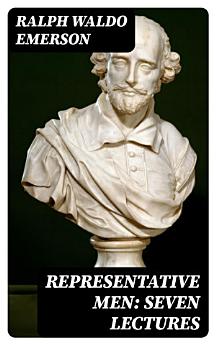Representative Men: Seven Lectures
05.2022 г. · DigiCat
Електронна книга
145
Страници
family_home
Отговаря на условията
info
reportОценките и отзивите не са потвърдени Научете повече
Всичко за тази електронна книга
In "Representative Men: Seven Lectures," Ralph Waldo Emerson presents a profound exploration of the key figures that embody the intellectual and cultural trajectories of his time. Comprising seven essays, each dedicated to a notable luminary—such as Plato, Swedenborg, and Napoleon—Emerson employs a reflective and philosophical style that melds transcendentalist ideals with biographical analysis. His work reflects the broader literary context of 19th-century America, as Emerson seeks to identify the archetypal characteristics of genius and character that shape societal ideals. The erudite prose challenges readers to contemplate the essence of individuality and the moral responsibilities of leadership, thus engaging with the timeless quest for authenticity in personal and communal life. Emerson, a central figure in the American transcendentalist movement, drew upon his extensive knowledge of literature, philosophy, and natural sciences to crafting this work. His background as a minister and his experiences in the intellectual circles of Europe and the United States profoundly influenced his thoughts on the nature of greatness and the role of exemplary figures in shaping human thought. Through "Representative Men," he articulates the interconnectedness of individual potential and collective identity, providing a framework for understanding influence and legacy. This seminal work is essential for readers interested in philosophy, literary theory, and American intellectual history. Emerson's incisive observations resonate deeply, offering insights that remain relevant in contemporary discourse on leadership and moral character. "Representative Men" is an invitation to engage with the complexities of human nature and the ideals that guide us, making it a vital addition to any scholarly library.
За автора
Ralph Waldo Emerson (1803-1882) was a central figure in the American transcendentalist movement, renowned for his essays, lectures, and as a champion of individualism. His work not only provided a philosophical backbone to transcendentalism but also had a profound impact on American thought and literature. Born in Boston, Massachusetts, Emerson was educated at Harvard before becoming an ordained minister. His disillusionment with organized religion led him to develop his own spiritual and philosophical outlook, which he articulated through his writing and public speaking. Emerson's work explores the inherent goodness of human beings, the beauty of nature, and the potential for personal growth and societal reform. His seminal essay collections such as 'Nature' (1836) and 'Self-Reliance' (1841) laid the groundwork for his literary prominence. In 'Representative Men: Seven Lectures' (1850), Emerson presents biographical sketches of historical figures, including Plato, Shakespeare, and Goethe, discussing their contributions and the ways they reflected or influenced the universal mind. Emerson's essays are characterized by their clear prose, aphoristic insights, and the belief that truth can be discovered through intuition. His literary style has been celebrated for its poetic rhythm and philosophical depth, making Emerson a pivotal figure in American letters and a primary shaper of its intellectual history.
Оценете тази електронна книга
Кажете ни какво мислите.
Информация за четенето
Смартфони и таблети
Инсталирайте приложението Google Play Книги за Android и iPad/iPhone. То автоматично се синхронизира с профила ви и ви позволява да четете онлайн или офлайн, където и да сте.
Лаптопи и компютри
Можете да слушате закупените от Google Play аудиокниги посредством уеб браузъра на компютъра си.
Електронни четци и други устройства
За да четете на устройства с електронно мастило, като например електронните четци от Kobo, трябва да изтеглите файл и да го прехвърлите на устройството си. Изпълнете подробните инструкции в Помощния център, за да прехвърлите файловете в поддържаните електронни четци.






